
Hi, and welcome to this review of Ancient Greece!
In this video, we’ll provide an overview of the major city-states of ancient Greece, examining the culture, people, and politics of the two most prominent cities: Athens and Sparta.
We’ll also consider relations between the two cities as allies against the Persian invasions as well as the factors which led to the long and ruinous Peloponnesian War. And finally, we’ll examine the aftermath and consider the historical legacy the city-states left behind
Let’s get started!
City-States, Culture, and Politics
Ancient Greece was not a unified country but a collection of hundreds of independent city-states. While there were some similarities in language and religion, each city-state, or polis, developed its own legal and political system. As you’ve probably realized, politics stems from the word polis.
Draco and the Draconian Code
Around 620 BCE, the Athenian legislator Draco developed a written code of laws for the city, known as the Draconian Code. These laws were notable for their strictness and heavy-handed punishments, which gave us the modern meaning of the word draconic. Over time, the laws were relaxed and the framework for a new system of government was first introduced in 594 BCE.
Cleisthenes and Athenian Social Organization
Athenians were organized into subdivisions: demes, trittyes, and phylai or tribes. The smallest unit was the deme, roughly the equivalent of a village or suburb. The numbers varied over time, but in Cleisthenes’ day, there were 159. Demes were organized into 30 trittyes. Tritty quite literally means ‘third’. Three trittyes, one coastal, one inland, and one urban, combined to form a tribe, the largest subdivision of Athenian citizens.
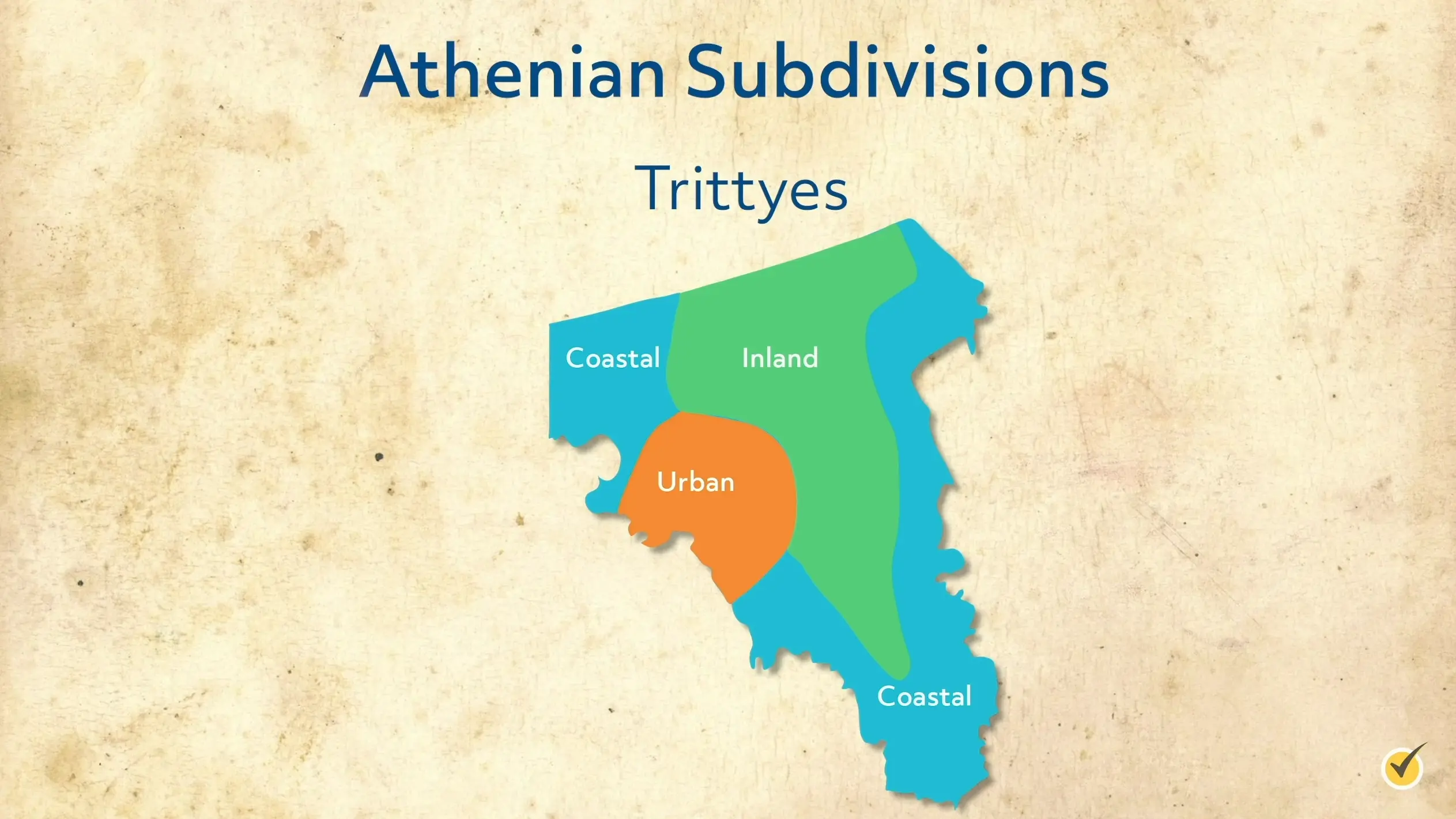
The Ekklesia and the Boule
Democracy was born in ancient Athens. There were two legislative bodies, the Ekklesia, open to all citizens, and the Boule. The Boule had 500 members, 50 drawn from each tribe. Every male Athenian could reasonably expect to sit on the Boule during his lifetime. Most public offices were determined by lottery and held briefly, some as short as a day.
Only the most important positions, leading the army or overseeing the treasury, were determined by election. Under this system, every citizen would have at least some say in the city’s decision-making. The Athenian system was certainly not free of corruption but created a strong sense of community that proved to be durable and guarded against one person assuming power.
Dual Kingship and the Ephors
Sparta’s government differed but shared the Athenian desire to avoid one person holding power. Sparta was ruled by two kings drawn from the prominent houses of Agiad and Eurypontid. The Agiad kings were considered the senior of the two. In times of war, one king would lead the army while the other would remain behind in Sparta.
The king was to be the first man to leave on the campaign and the last to return. The kings shared power with the ephors, a council of five magistrates elected annually to act on behalf of the city.
The Gerousia and the Appella
The Gerousia was a council of Spartan elders over the age of sixty who served lifetime appointments. They were something of a Spartan Supreme Court with the power to bring any citizen, including kings, to trial.
The Spartan equivalent of the Ekklesia was the Appella, an assembly open to all Spartan males over the age of 30. Spartan custom held that a person did not reach adulthood, and therefore citizenship, until the age of 30. The Appella met around once a month and approved or rejected measures put before it by shouting. A practice other polis thought rather crude, but the Spartans had their own way of doing things and cared little for outsiders.
Laconic Wit and Disdain for Luxury
Today, the term ‘spartan’ refers to an indifference towards comfort or luxury, stemming from the disdain Spartans felt towards luxuries. The Spartan disdain for luxury extended to language. The height of Spartan wit was the laconic phrase, a clever, concise remark to deflate a verbose opponent or to display defiance. The term comes from the Laconian region in which Sparta was situated.
The Agoge and Military Training
At age seven, a boy entered the Agoge, a brutal training regime intended to produce exceptionally disciplined soldiers. One of the main tenets of Spartan law was to never run from battle or break rank, no matter the odds.
The first stage of the Agoge lasted until age 12. Boys were denied even the slightest comfort, no shoes and a single cloak was the only clothing provided all year. They were underfed to the point of starvation to develop the ability to operate in a state of severe malnutrition and to encourage the boys to steal. Shame and punishment befell the boy who was caught.
The second stage saw the cadet move into a barracks under the mentorship of an older citizen to continue his training. A Spartan was finally eligible for military service at the age of 20 but continued to live in barracks until he turned 30.
In dress there was little to distinguish a rich or poor Spartan. A fit physique was more impressive in Spartan eyes than fancy clothes. Spartans grew beards and wore their hair long, this was considered a sign of status for it demonstrated a life free of manual labor. In the pursuit of military excellence, there was no time to toil the fields. That was left to the underclass of slaves, the helots.
Helots and Perioikoi
The helots were probably the descendants of peoples conquered by the Spartans, though their exact origins are unknown. Helots were routinely subjected to abuse and could be killed without repercussion under some circumstances. Every autumn the ephors of Sparta issued a declaration of war against the helots, giving members of the krypteia, a sort of secret police, free hand to prevent the helots from revolting.
Between the citizens and the helots were the perioikoi, free people who lived in the areas surrounded by Sparta. They manufactured weapons and provided soldiers for the Spartan army. They were also permitted to engage in trade and other economic activities the Spartans considered beneath them.
The citizens of Sparta represented a minority of the population, so any significant losses endured in battle or through natural disasters, like the earthquake of 465 BCE, would be extremely difficult to replace.
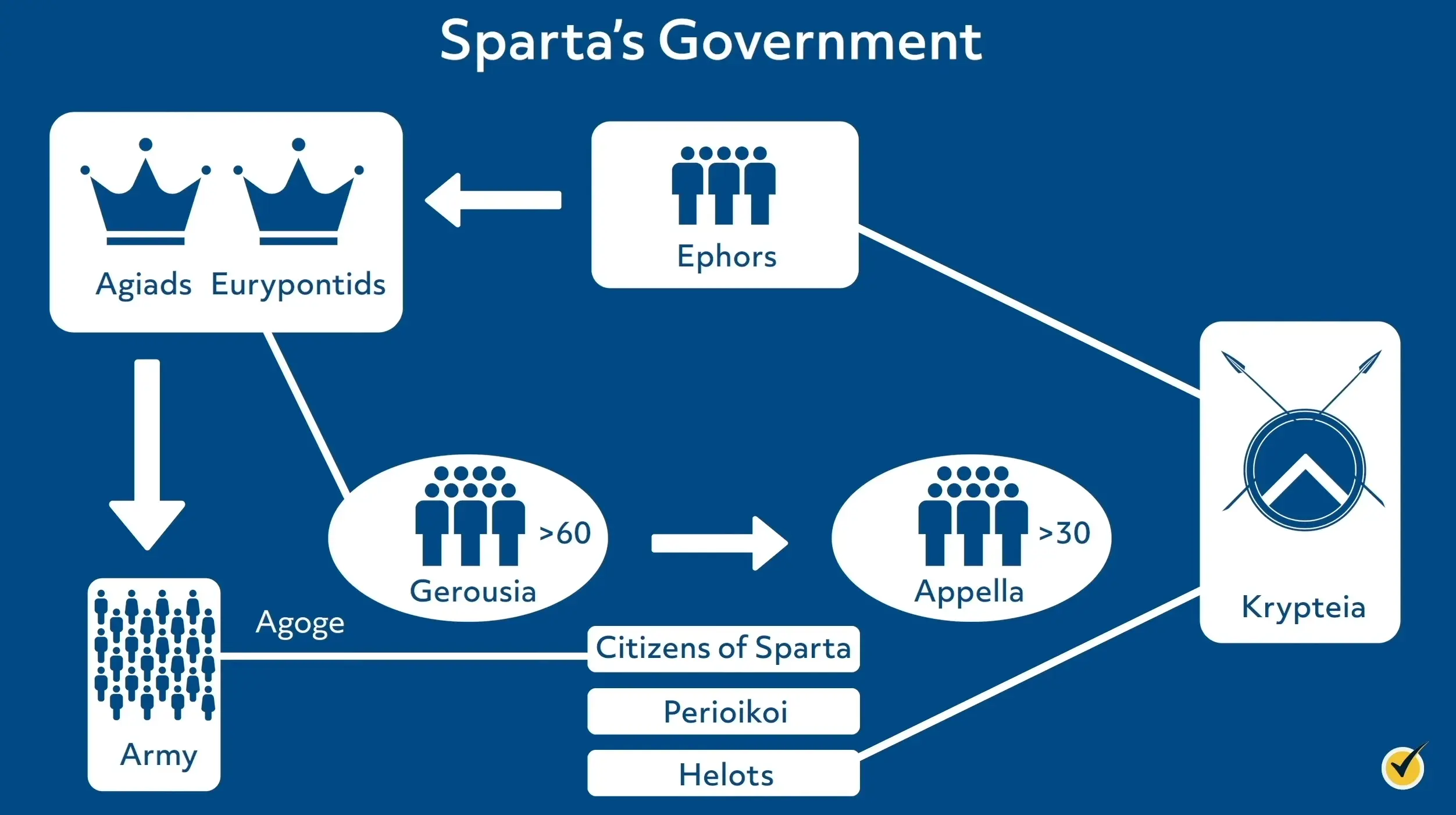
Spartan Women and their Status
As the city was dependent on maintaining a steady birthrate, incentives were offered to encourage procreation and Spartan women enjoyed much greater status than in other states.
Spartan women were expected to be fit and healthy in order to bear strong children. Spartan women trained in dance, gymnastics, and competed in athletic competitions. They typically wore their hair short and did not wear make-up. Unlike other polis, Spartan women were educated and could inherit land. They were infamous among Greeks for their natural beauty, biting wit, and outspoken nature.
Athenian Women and the Thesmophoria
Athenian women did not enjoy the same freedoms but did have the Thesmophoria to look forward to. This was an annual religious festival held over three days to honor Demeter, the goddess of fertility. Men were strictly forbidden from taking part and the rites were kept secret. All city business closed down and the men were left to wonder just what the women were up to beyond the city walls.
Religion was a focal point of life in Ancient Greece; many festivals were held throughout the year. Ritual sacrifices of animals may have occurred as often as once every three days in Athens. The Spartans took religion very seriously and would not march out to war if the omens were poor. Athletic games occurred at the larger events and competitors from across Greece gathered to win glory for their polis.
The Olympian Games, the ancient precursor to the modern Olympic Games, were one of four events held in Ancient Greece. In Athens, the Great Panathenaea was held every four years in honor of Athena Polias, the patron goddess of the city. Athletes competed not for medals, but for jars of olive oil. There were also competitions in dance, music, and poetry recitation which were open to all comers.
Team sports also took place, but only Athenians could compete, and each tribe entered a team for prizes of money and oxen. The games culminated in a procession to the Acropolis, the temple complex of Athens, and the mass ritual sacrifice of animals followed by a feast.
The Greeks left their mark on the world in other ways. Athens was the intellectual center of the ancient world even after the city’s decline. Ancient Athens was home to some of history’s most acclaimed philosophers. Socrates and his students Plato and Xenophon were natives of Athens while Aristotle travelled to the city as a young man to study at Plato’s academy. Their work inspired generations of scholars from the renaissance to the present day.
The First Persian Invasion
Athenian-Spartan relations were complex, though rivals they sometimes allied against a common enemy. In 499 BCE the Athenians provided support to the Ionian revolt against Persian rule. After the rebellion was crushed, the Persian ruler Darius vowed to punish Athens.
According to one source, Darius instructed a servant to remind him of the Athenians at every meal.
By 490 BCE, the Persians were just a few miles outside of Athens, at the town of Marathon. The Athenian army defeated the numerically superior but lightly-armored Persian force. Like the other polis, the Athenian soldiers fought in a phalanx. A tight formation of overlapping shields to which the Persians simply had no answer.
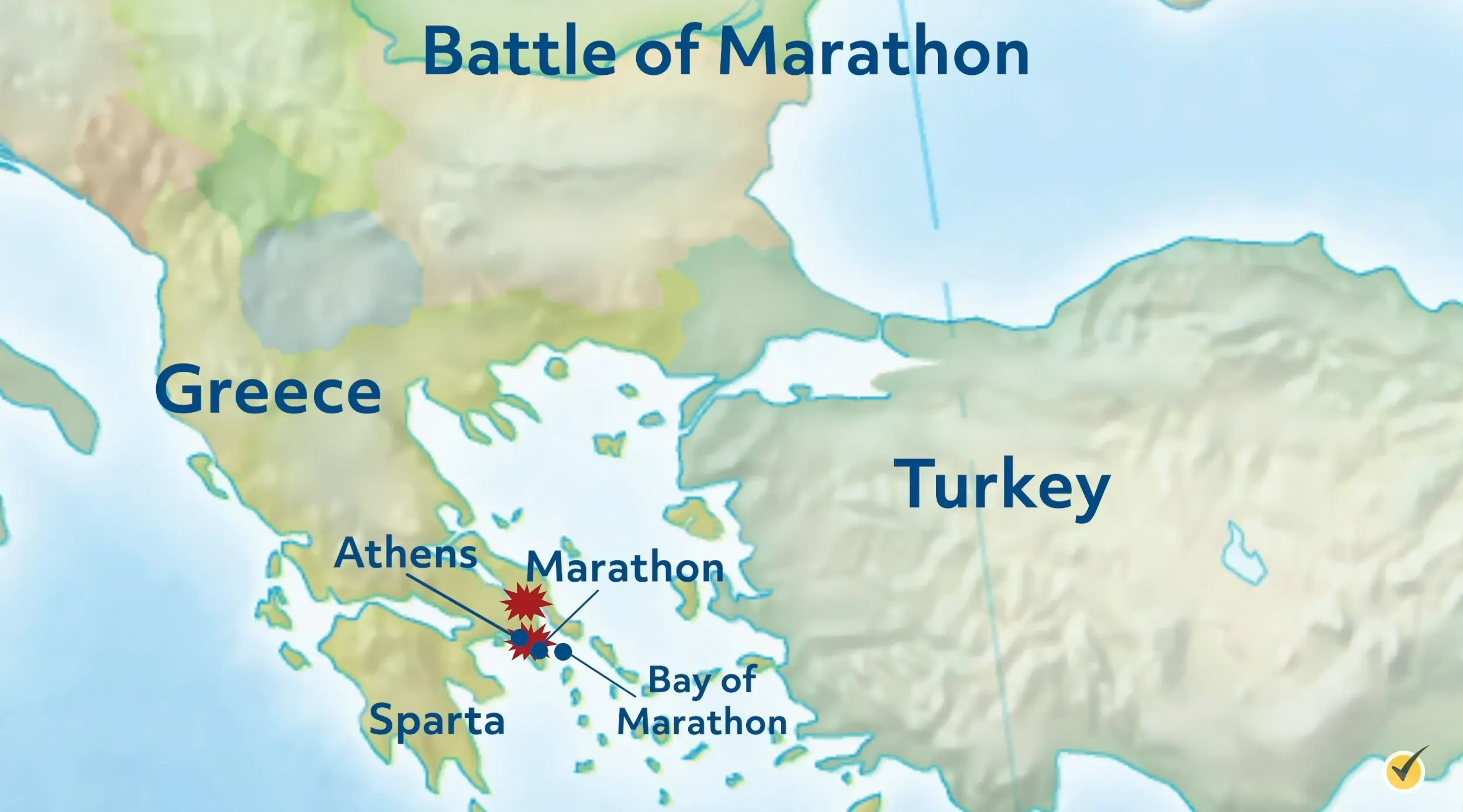
Some sources say a runner was dispatched to bring news of victory to Athens, 26 miles away. There is some debate as to whether this run ever took place but the long-distance race we know today bears the name of the battle nonetheless. The Spartans had pledged support but arrived too late to take part in the battle. After a tour of the field, they returned home disappointed to have missed the glory.
The Second Persian Invasion
In 480 a second invasion headed by Darius’ son Xerxes crossed the Hellespont, the narrow strait which separates continental Europe from Asia minor. The Athenian-Spartan alliance held; the former commanded the war effort at sea while the latter oversaw the land campaign. The Spartan-led Greek army chose a narrow pass at Thermopylae to hold off the much larger Persian army.
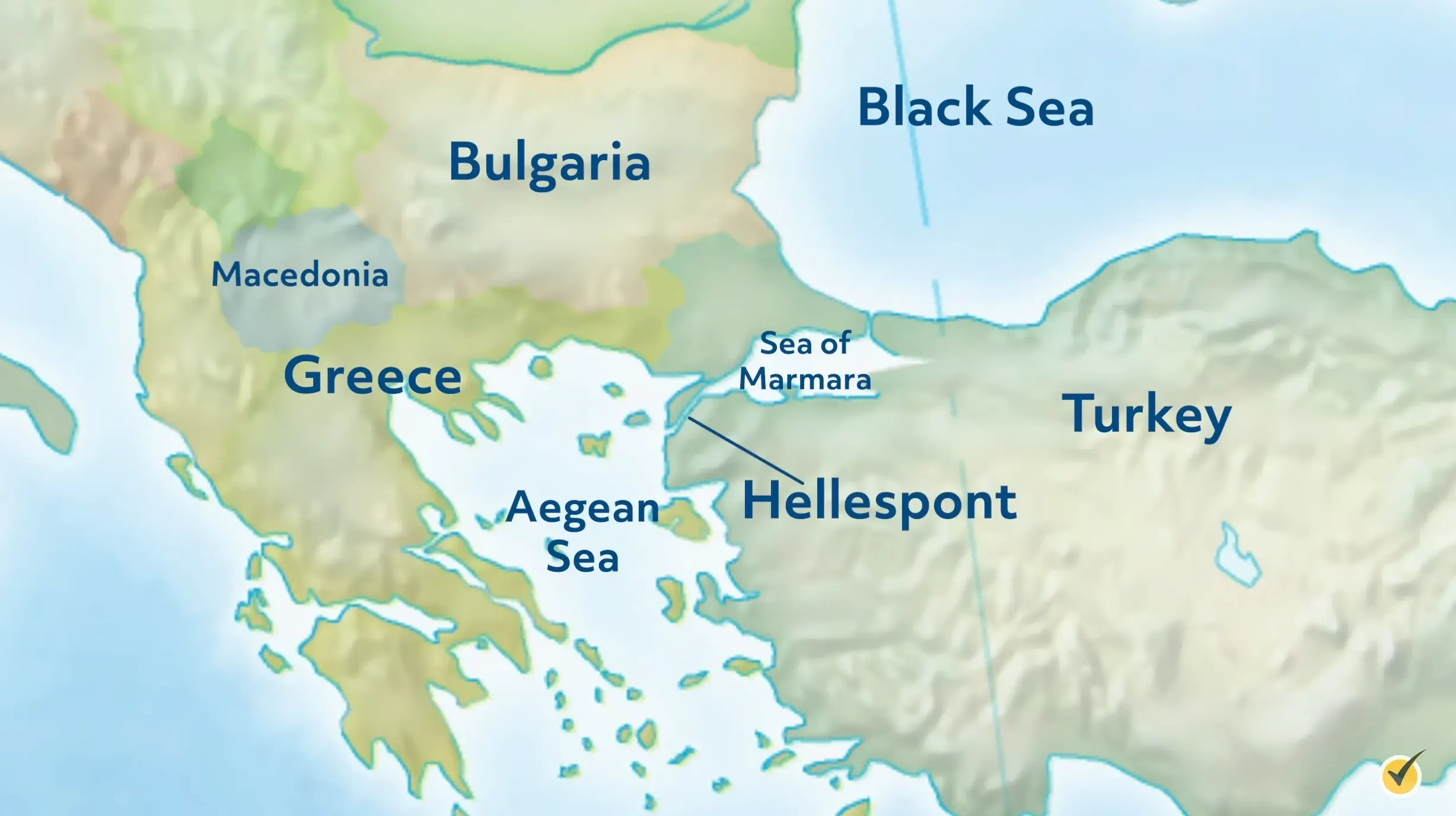
The battle of Thermopylae is one of history’s most famous last stands. After holding the Persians at bay for two days, a local led the Persians around the back of the Greek position. To buy time for the rest of the army to escape, the 300 Spartans and their king Leonidas remained behind to face certain death.
It’s often forgotten that the Thespians and the Thebians also chose to stay behind. The rearguard was annihilated in a desperate fight to the death, but their sacrifice allowed the majority of the Greek army to escape and fight another day. Athens was evacuated ahead of the Persian advance and the city was burned.
The tide turned with a naval victory at the battle of Salamis. The Athenian general Themistocles oversaw a decisive victory over the Persian fleet. This effectively cut the Persian supply line and allowed Greeks to regroup. The Persian expedition was driven out of Greece in August 479 BCE with Greek victories at Platea and Mycale.
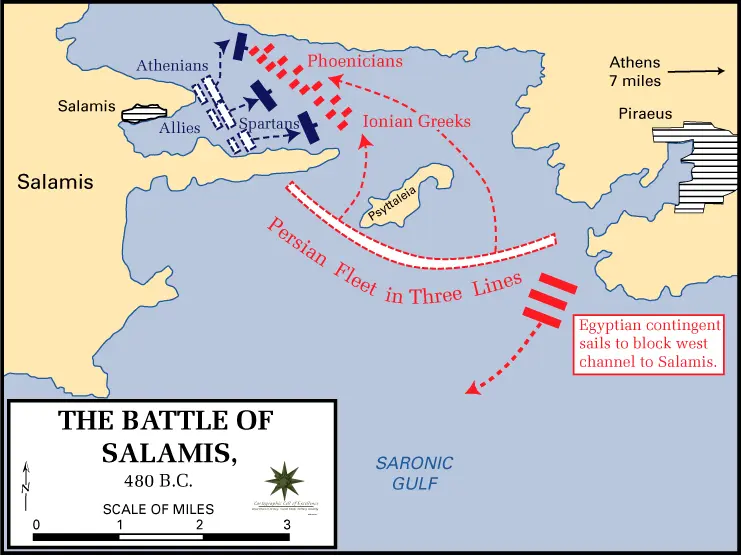
The Aftermath of the Persian Wars
The alliance dissolved in the aftermath of the victory; Athens formed the Delian League while the Spartans led the Peloponnesian League. The Delian League was formed to fund a navy to resist any future Persian invasions, the other members were essentially subjects of Athens. The period between the end of the second Persian invasion and the Peloponnesian War is considered the golden age of Athens.
Athens thrived under the leadership of Pericles. The Acropolis was rebuilt and construction began on its most famous temple, the Parthenon, in 447 BCE. A prosperous trading empire was established in the Aegean Sea bringing great wealth into the city’s coffers. It was a period in which outsiders flocked to the city to seek their fortune. The influx of free non-citizens of Athens, metics, prompted stricter citizenship laws. Only a child born of two Athenian citizens could be a citizen. Pericles himself had to secure special dispensation to allow his son by an Ionian woman to be recognized as a citizen.
Decline
The Peloponnesian War
The good times were not to last: a dispute between members of the Delian and Peloponnesian Leagues escalated into a full-blown conflict. The Athenian strategy was to avoid fighting the Spartans on land, taking refuge behind the city’s walls and to win the war at sea. Unfortunately for Athens, having so many citizens in the city at once saw a devastating plague break out in 430 BCE, which Pericles did not survive. The war dragged on until 404 BCE when the exhausted Athenians sued for peace.
The Rise of Thebes
Sparta’s mastery over Greece did not last. The Spartan army was shattered by elite Theban shock troops, the Scared Band, at the battle of Leuctra in 375 BCE. The rise of Thebes saw Athens and Sparta ally once more. A combined Athenian-Spartan army lost a bloody battle with the Thebans in 362 BCE. Heavy losses forced an uneasy peace which paved the way for the nearby kingdom of Macedonia to establish hegemony over Greece.
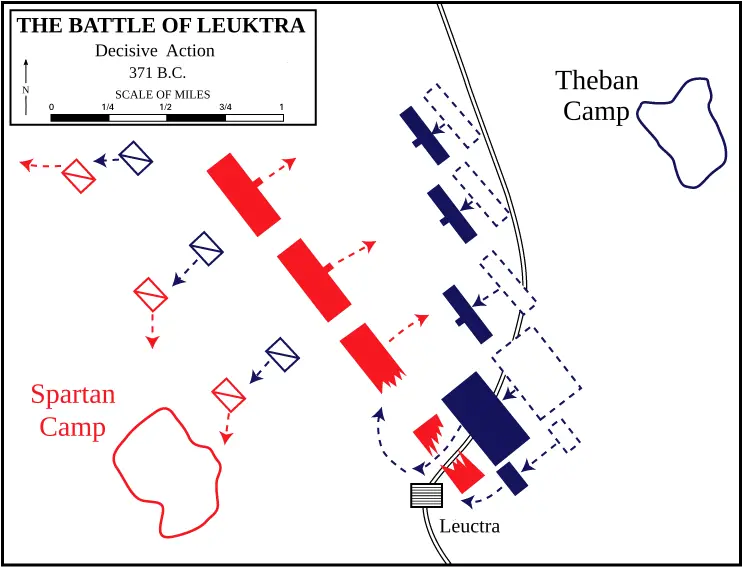
Macedonian Dominance and Roman Rule
Philip II established the League of Corinth in the winter of 338, bringing the Greek cities under Macedonian dominance. The one holdout was Sparta who refused to join, prompting Philip to send a warning to Sparta which roughly translated to “if I enter your city, I will destroy you all.” The Spartans offered a characteristically laconic reply of a single word, “if.”
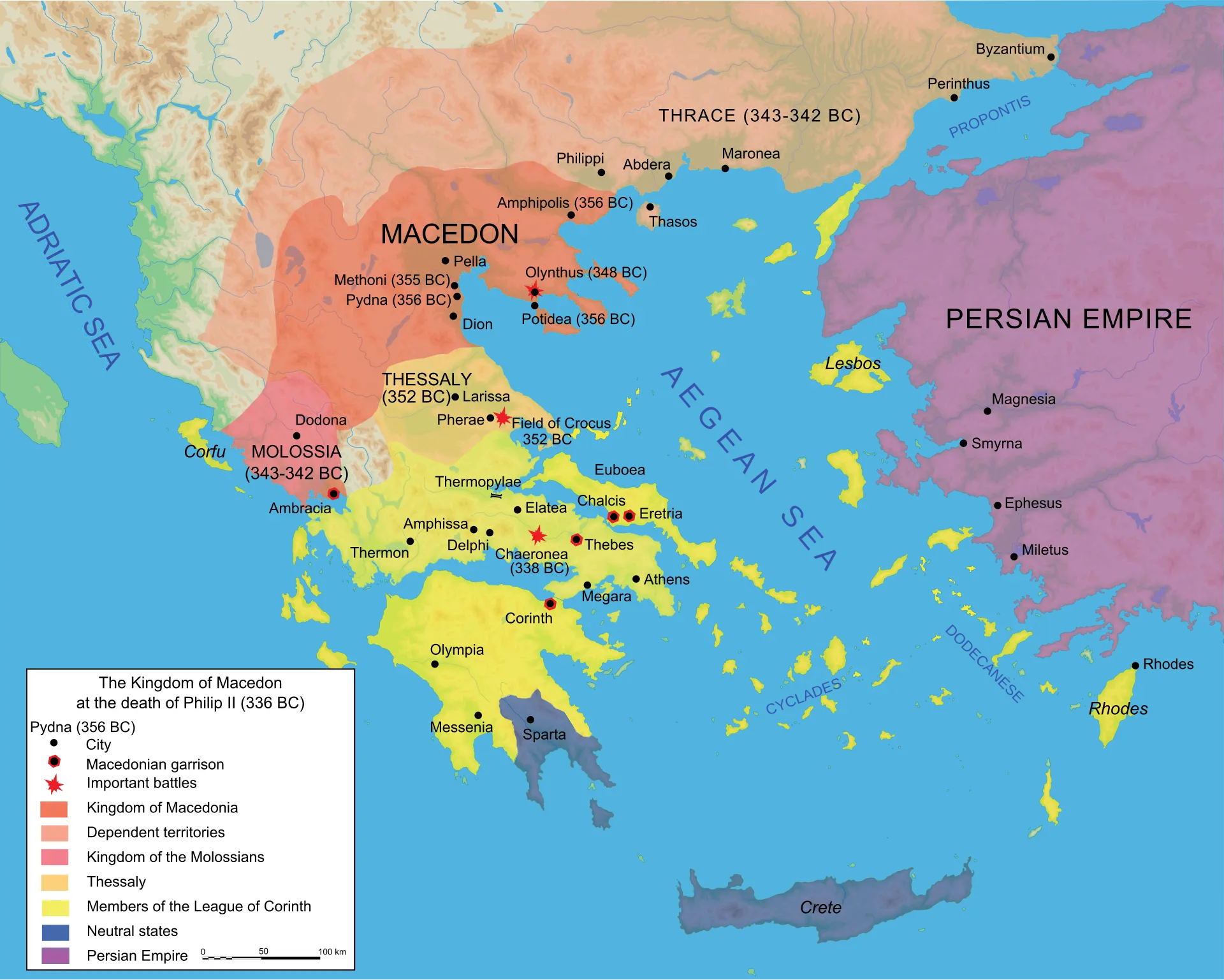
This act of defiance by a city long past its prime apparently had the desired effect, for neither Philip nor Alexander the Great bothered to conquer Sparta. In later antiquity Athens and Sparta fell further from prominence, and Macedonian dominance gave way to centuries of Roman rule. Neither city established a lasting empire but both left behind an enduring legacy which continues to fascinate scholars to the present day.
Review Questions
Okay, now that we’ve covered everything, let’s go over a few questions:
1. What was the smallest political unit in ancient Athens?
- Deme
- Tritty
- Phyle
- Gerousia
2. What was the Spartan general assembly called?
- Ekklesia
- Gerousia
- Apella
- Krypteia
3. What was the name of the alliance formed by Athens after the second Persian invasion of Greece?
- Peloponnesian League
- Delian League
- League of Corinth
- None of these
That’s all for this review! Thanks for watching, and happy studying!

